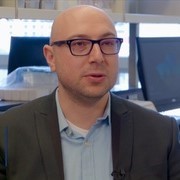Session Agenda
Responsible conduct of research is quintessential in maintaining scientific integrity. Researchers either intentionally or negligently may adopt questionable research practices leading to detrimental consequences. To minimize the risks and hazards associated with unethical behavior, researchers must be aware of the various types of research misconduct and the ways to avoid these malpractices. Enago in collaboration with Hindawi conducted a joint webinar to uphold scientific integrity by helping research scholars understand the significance of good ethical conduct. We focussed on explaining the most common type of research misconduct—plagiarism and its different forms and have shared effective strategies to prevent it.
Through this session, researchers will have an improved understanding of the following:
- An overview of research and publication ethics
- Importance of research ethics
- Major ethical issues and how to avoid them
- How to draft plagiarism-free manuscripts?
- Legal consequences of IPR violation
About Hindawi (www.hindawi.com)
Hindawi Limited is one of the world's largest open-access publishers with an expansive portfolio of academic research journals across all areas of science and medicine. Each peer-reviewed journal has been developed in partnership with academic researchers, acting as editors, to fit the targeted communities they serve. Driven by a mission to advance openness in research and placing the researcher at the heart of everything we do, we work with publishers, institutions, and organizations to move towards a more open scholarly ecosystem by investing in the development of open-source publishing infrastructure.
Who should attend this session?
- Graduate students
- Early-stage researchers
- Doctoral students
- Postdoctoral students
- Established researchers
Register Now
Sign-up to read more
Subscribe for free to get unrestricted access to all our resources on research writing and academic publishing including:
- 2000+ blog articles
- 50+ Webinars
- 10+ Expert podcasts
- 50+ Infographics
- Q&A Forum
- 10+ eBooks
- 10+ Checklists
- Research Guides




 Prof. Gotesman is an acclaimed biologist, a published author, and a distinguished instructor with more than 20 years of extensive research experience in the fields of molecular biology, cell culture, and biotechnology. He has a doctorate in Biology from the Graduate Centre, City University of New York (USA) and is currently working as a Senior Scientist at Ibex Biosciences LLC. Prof. Gotesman has publications in established journals such as Elsevier, Springer, Wiley, and BioMed Central, and is also a recipient of prestigious awards conferred by committees and boards such as the PSC-CUNY Adjunct/CET Professional Development Fund Award, the ASCB Travel Award, and the Janet Horowitz Hecht Memorial Biology Award for his remarkable contribution to research and education. At Enago Academy, Prof. Gotesman guides research scholars at every step of their publication journey through interactive training sessions and helps them build a rewarding career in academia.
Prof. Gotesman is an acclaimed biologist, a published author, and a distinguished instructor with more than 20 years of extensive research experience in the fields of molecular biology, cell culture, and biotechnology. He has a doctorate in Biology from the Graduate Centre, City University of New York (USA) and is currently working as a Senior Scientist at Ibex Biosciences LLC. Prof. Gotesman has publications in established journals such as Elsevier, Springer, Wiley, and BioMed Central, and is also a recipient of prestigious awards conferred by committees and boards such as the PSC-CUNY Adjunct/CET Professional Development Fund Award, the ASCB Travel Award, and the Janet Horowitz Hecht Memorial Biology Award for his remarkable contribution to research and education. At Enago Academy, Prof. Gotesman guides research scholars at every step of their publication journey through interactive training sessions and helps them build a rewarding career in academia. Ben has an integrated Masters degree in Biomedical Science from the University of Southampton and over 5 years of experience working in research integrity and editorial roles for journal publishers. He currently manages a team of Research Integrity Editors at Hindawi, who are responsible for identifying and resolving ethical concerns in submitted and published articles. Prior to Hindawi, Ben has worked as an Assistant Editor for the BMC Series of journals (part of Springer Nature) and also as a Research Integrity Specialist for Frontiers.
Ben has an integrated Masters degree in Biomedical Science from the University of Southampton and over 5 years of experience working in research integrity and editorial roles for journal publishers. He currently manages a team of Research Integrity Editors at Hindawi, who are responsible for identifying and resolving ethical concerns in submitted and published articles. Prior to Hindawi, Ben has worked as an Assistant Editor for the BMC Series of journals (part of Springer Nature) and also as a Research Integrity Specialist for Frontiers.